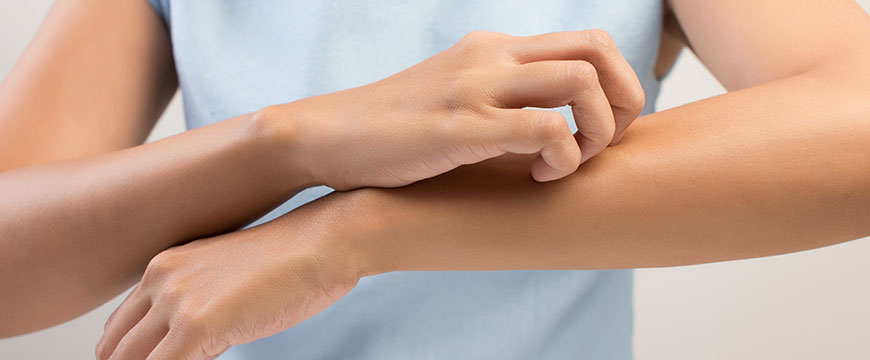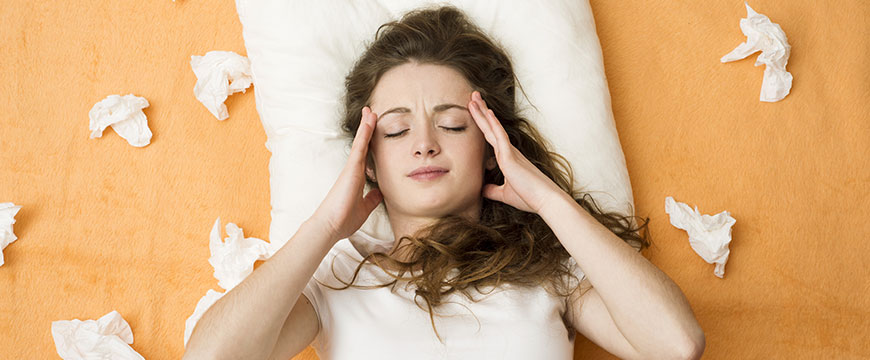According to statistics more than 10 million in the united states suffer from allergies during their lifetime. Skin allergy can affect any part of the body and can result from psoriasis, eczema, pollen, acne, insect bites, food and other factors. If the skin allergy symptoms keep recurring its best that you consult an allergist Manassas as that could be a sign of a more serious health issue. The below are the most common signs of skin allergy;
- Rash and itching
- Redness and swelling
- Raised bumps and flaky skin
- Cracked, and dry skin.
Skin allergy symptoms will disappear on their own after some time, but if you notice that is no improvement speak to your allergy Physician and get medication.
Types of Noninfectious Rashes
- Atopic Dermatitis
Atopic dermatitis is also known as Eczema and most common in children. The skin becomes dry and prone to irritation. Food allergies will make eczema more severe and its linked to asthma and hay fever. It’s important that if you notice your child has a flaky irritating skin that you visit the allergy doctor for treatment.
- Contact Dermatitis
Contact dermatitis occurs when your skin comes into contact with an allergen.
- Seborrheic Dermatitis
Mostly affects adults and it’s characterized by an itchy eruption on the forehead, cheeks, forehead, and ears.
- Hives or Urticaria
Hives result from an inflammation of the skin when the body immune system releases histamine.
- Heat Rash (Miliaria)
The heat rush results from hot and humid weather and results from occlusion of the sweat glands. Most occur around the neck and upper chest.
- Stasis Dermatitis
Occurs on the lower legs and results in chronic swelling due to poor circulation in the veins
Home Remedies to Ease Skin Allergies
It’s best that you visit the allergy doctor and discuss the home remedy for the skin allergy that will work for you.
Cold Compress
A cold compress is the perfect skin allergy remedy but only works if the allergy is not as a result of the cold. A cold compress will shrink the blood vessels and stop histamine from being released into the blood. That will aid in reducing the allergic reaction. A cold shower will also help reduce skin allergy.
- Olive Oil
Olive oil is rich in vitamin E and acts as an antioxidant, which helps repair and heals the skin after an allergic reaction. Apply an amount of olive oil on the affected area and that will help ease the allergic reaction.
- Baking Soda
Baking soda will help the rash dry out. Mix a half teaspoon of baking soda in water and make a paste. Apply the paste on the affected area and leave it for a few minutes before wiping it out. Leaving the paste for too long on the skin may cause irritation. Before using the paste you can consult the allergy specialist to avoid making the irritation worse.
- Apple cider Vinegar
Apple cider vinegar helps reduce acid reflux, acts as an antiseptic and anti-irritant. Apply the vinegar over your skin and that will help soothe and moisturize the skin reducing the itching. Place a few drops of the vinegar in a cotton ball and dab over the itching place. Rinse the skin after a few minutes.
- Ground Oat Meal
Ground oatmeal acts as a soothing balm for the itchy and inflamed skin. On applying the oatmeal it will reduce redness and itching. Oatmeal contains avenanthramide which is anti-inflammatory and anti-itching chemicals. To make oatmeal effective, put in a bathtub full of water and soak in it for some time.
- Stinging Nettle
Stinging nettle contains antihistamine properties. Steam the stinging nettle leaves and then eat the leaves to get the antihistamine benefits.
- Aloe Vera
Aloe Vera has anti-inflammatory, antibacterial and antifungal properties that will help ease skin allergies. Apply Aloe Vera regularly to ease the allergic reaction and reduce the itchiness. Extract a fresh Aloe Vera and apply it on the affected area. Wash off after 30minutes.
The above home remedies should help ease skin allergies, however, before you begin using any of the remedies visit the allergy specialist and consult on which one will work for you. Too much of the home remedies may aggravate the allergies and it’s important that you use the right portion. If the skin allergy doesn’t ease even after using the remedy, contact the allergy physician for a further diagnosis and testing.

